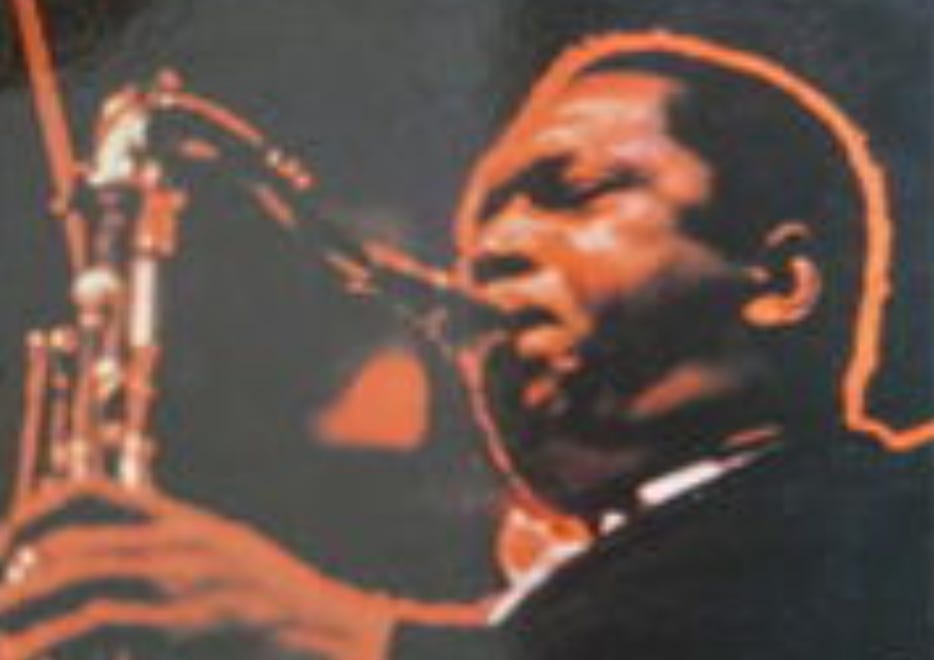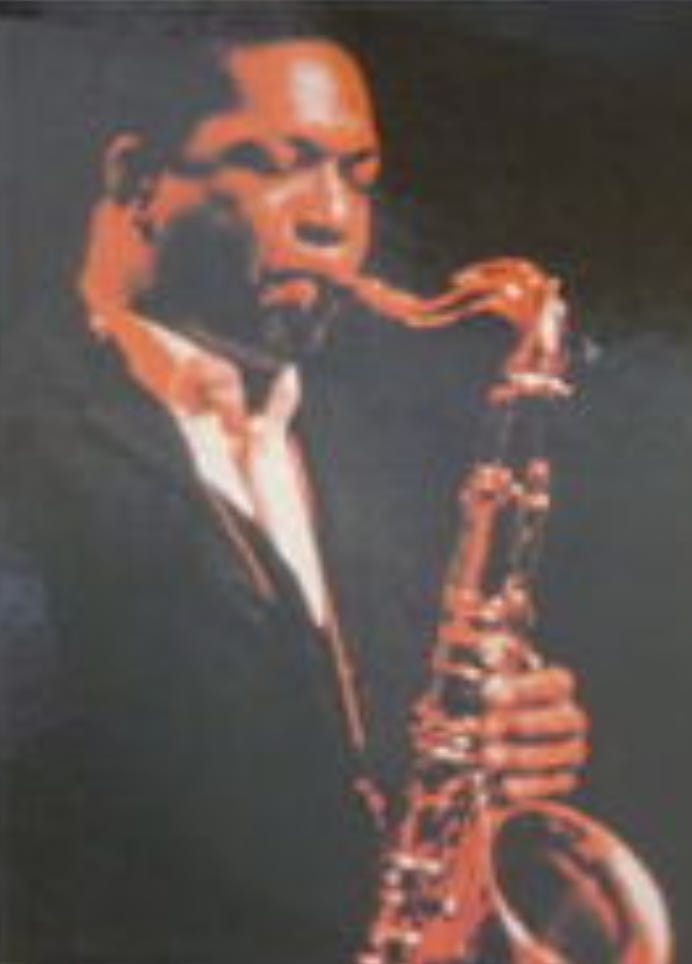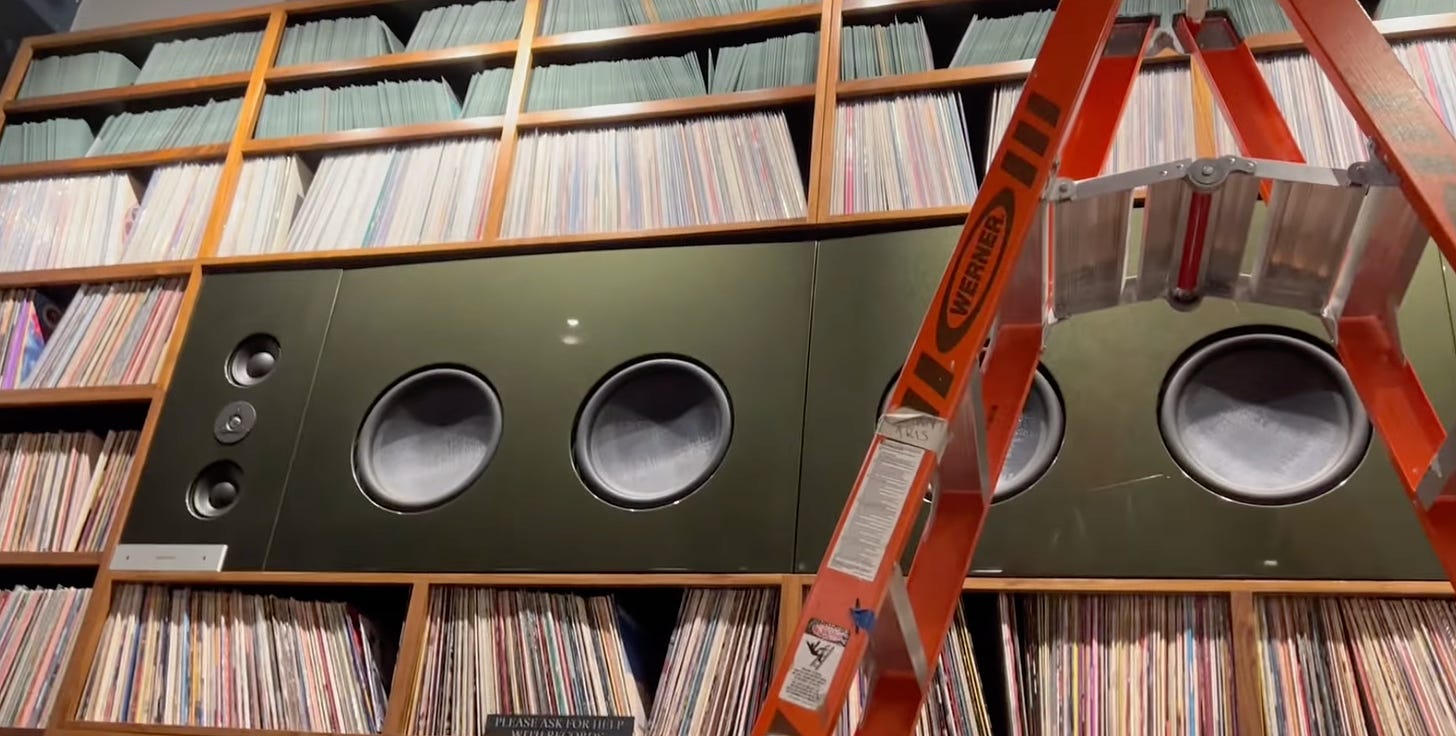· By David Katznelson
When The Dog Bites, When The Bee Stings
There are those artists who late in their career not only continued to evolve, but boldly go where few had gone before. Paul Cézanne, for instance, went from being a giant of the Impressionist movement to a prophet of the abstract era with his canvases devoted to his painting the air. James Joyce, whose writing style never was an easy one, finished his career with Finnegan’s Wake, still considered one of the most difficult books to read…where he took some of the strategies he employed when writing Ulysses and stretched and kneaded them out, blowing up the literary. So now let’s talk about John Coltrane.
John Coltrane’s legacy is marked with some of the greatest musical moments of the twentieth century, a jazz voice that is one of the most recognizable with an artistic vision that created uplifting, challenging but always rewarding music. His music touched the soul so deeply, that it even inspired a church devoted to him here in the Bay Area (that is over 50 years strong). He came up playing with Miles Davis and Thelonious Monk among others, but soon established himself as a solo artist, putting together one of the most famous and powerful jazz quartets, as well as recording album after album of incredible material like Soul Trane, My Favorite Things, Giant Steps, A Love Supreme….just to name a few. My favorite recordings of ‘Trane are his nights at the Village Vanguard where he took his song Spiritual to an entire new level, showcasing his gift at improvising between the bookends of beautiful melodies.
And while Miles Davis went funky as he hit his later years, with albums such as Bitches Brew and On The Corner that helped define the concept of “Jazz Fusion” (not my thing to be honest), Coltrane took a rocket ship to a noisy universe unknown to the human ear. During his final years, Coltrane put together a new all-star lineup and proceeded to create recordings that are considered to be as difficult to listen to as Finnegan’s Wake is to read. One of the most famous recordings of his late period are the ones he made live, in Japan, featuring his wife Alice Coltrane on piano, Pharaoh Sanders on Sax, Rashid Ali on drums and Jimmy Garrison on bass.
Recorded a year before he passed away from liver cancer, the Live in Japan recordings show a full-of-life ferocity that Coltrane had been building upon through the 60s. This past week, while driving through the land of old growth redwoods of Northern California, I pulled out the final disc of the 4, an almost hour-long version of the Rogers/Hammerstein number My Favorite Things, a Coltrane standard and one of the last songs Hammerstein wrote before his own untimely death. Coltrane was a fan of bass solos, and the piece starts with a 14+ minute soliloquy by Garrison where his light touch sounds like whispers in the back of a Cathedral which slowly moves to a rhythm that the entire quintet pours through. The band in full swing was an unbridled sonic attack, led by a machine-gun performance by Coltrane with his wife Alice powerfully slamming down rhythmic chords in conversation with Ali’s trap assault.
Coltrane’s petri dish of fierce chaos is improvisation at its best, and in some ways his greatest achievement. Deep in the heart of the performance, he jumps into the first run-through of the famous My Favorite Things verse, creating a new language through his interpretation of it, finding refuge in its sing-song melody as he transforms it into a new life form before leaping back into the free jazz locomotive, with Pharaoh taking a solo, offering his fresh mystical voice to the mix. Coltrane revisits the melody two more times over the next half hour, the final time exploding his way past the verse into the song’s chorus and conclusion. 57 minutes of a sprinted marathon, and a skyscraper left behind for the jazz landscape.
Everything written about Coltrane’s Live in Japan focuses on how difficult of a listen it is…almost scaring anyone off from breaking into it. But when pondering the career of John Coltrane, it is such a hopeful document of an artist’s final chapter has he blasts off into the outer reaches of the galaxy. And what’s more: it will clear your head of any cobwebs and strange, and fill it with inspiration.
Mississippi Author Jesmyn Ward: Winner of the 2022 Library of Congress Prize for American Fiction
Jermyn Ward’s recent book, a ghost story: Sing, Unburied, Sing has been on my reading list since it won the National Book Award last year. She has won so many awards so early in her career….and now this one, where she is the youngest winner ever of this prize.
ANISH KAPOOR OPENS EXHIBITION AT GALLERIE DELL’ACCADEMIA & PALAZZO MANFRIN IN VENICE
My friend Jon Rubin took me aside as we were sipping some cocktails in Arcata recently to show me some of the art exhibits that were in this year’s Venice Biennale including the show-stopping, gut wrenching installation by Anish Kapoor. Room after room of bloody red messes, Kapoor’s reaction to what is happening in the Ukraine…and around the world for that matter..is a cry out for understanding and changing the direness of the world’s current reality.
DATA OBSESSION IS KILLING CURATION IN LIVE BOOKING
My dear friend Steve Backman is one of those vintage booking agents who anuy band would be lucky to have. His most recent company, Runway, is a classic boutique agency from which he can operate in the manor he feels is best for the artist…to strategically develop the artist using touring even during this crazy still-pandemic time. He wrote an op-ed recently around a conversation he has been having for a while…one that I have had with him before…challenging the money-ball focus on touring…and why all of the festivals out there look the same (except for the folk yeah ones, among others, which are continually breaking the mold).
Notes on the Memphis Listening Lab
Music industry legend and old friend Ray Farrell visited The Memphis Listening Lab and has this to report (thanks for letting me post this, Ray):
Last week, my good friend Andria Lisle suggested I visit the Memphis Listening Lab. It's a music and book library curated by Jim Cole formerly of the Stax Museum. The massive archive began with the collection of John King, the promo man for Ardent Records. John was the first “record man” I spoke with on the phone while working at my college radio station in the early 70’s. The focus is on Memphis music, but goes well beyond that. The brief panoramic video below shows the main room. There’s turntable listening stations and a room for group listening and special events. It’s a simple set up- you browse the collection and ask to hear an album. I got there a half hour before closing and spotted a book I had as a teen called "The Age Of Rock 2”, a compendium edited by Jonathan Eisen. I’d forgotten about the funny Peter Stampfel article and the confusing (at the time) Meltzer essay. I didn’t venture up the ladder to browse, but the top shelves have 45’s I’d love to hear. Jim is still assembling the database. They accept donated collections. While talking to Jim, a young woman handed back her borrowed copy of an lp she had long wanted to hear. She was so happy to listen to and look at an album she had only heard about. The Lab is in the Crosstown Concourse, once the enormous Sears store opened in 1927. If you go to Memphis, you'll likely spend more time here than at Graceland.
Amateurs of Heaven
By: Howard Nemerov
Two lovers to a midnight meadow came
High in the hills, to lie there hand and hand
Like effigies and look up at the stars,
The never-setting ones set in the North
To circle the Pole in idiot majesty,
And wonder what was given them to wonder.
Being amateurs, they knew some of the names
By rote, and could attach the names to stars
And draw the lines invisible between
That humbled all the heavenly things to farm
And forest things and even kitchen things,
A bear, a wagon, a long handled ladle;
Could wonder at the shadow of the world
That brought those lights to light, could wonder too
At the ancestral eyes and the dark mind
Behind them that had reached the length of light
To name the stars and draw the animals
And other stuff that dangled in the height,
Or was it the deep? Did they look in
Or out, the lovers? till they grew bored
As even lovers will, and got up to go,
But drunken now, with staggering and dizziness,
Because the spell of earth had moved them so,
Hallucinating that the heavens moved.








